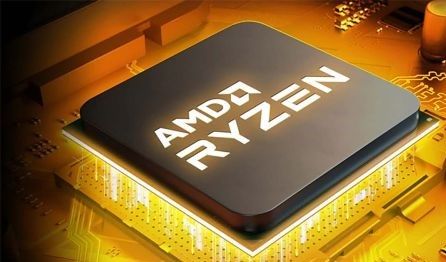If you have an AMD Ryzen chip in your gaming rig, you may want to hold off on upgrading to Windows 11 for a bit. AMD and Microsoft announced that Windows 11 compatible AMD CPUs “may exhibit reduced performance in certain applications when running Windows 11,” according to a blog post that our friends over at Tom’s Hardware spotted.
Your next upgrade
Best CPU for gaming: the top chips from Intel and AMD
Best graphics card: your perfect pixel-pusher awaits
Best SSD for gaming: get into the game ahead of the rest
This means more than 100 AMD processors can be affected. According to AMD, one of the issues is the measured and functional L3 latency can nearly triple, which lowers the performance of certain applications that rely on memory and cache latency, such as games.
The other problem lies with AMD’s “preferred core” feature not working as advertised. Preferred Core assigns apps to the fastest core on the chip. This, too, may cause noticeable performance dips with chips that are 65W and higher.
Below is the full AMD advisory notice about these two know issues:
Swipe to scroll horizontally
| Known Performance Changes | Impact |
|---|---|
| Measured and functional L3 cache latency may increase by ~3X | Applications sensitive to memory subsystem access time may be impacted. Expected performance impact of 3-5% in affected applications, 10-15% outliers possible in games commonly used for eSports. |
| UEFI CPPC2 (“preferred core”) may not preferentially schedule threads on a processor’s fastest core | Applications sensitive to the performance of one or a few CPU threads may exhibit reduced performance |
AMD confirms that every Ryzen CPU that’s supported by Windows 11 is impacted, along with EPYC and Anthlon chips.
Our testing of a Ryzen 9 5900X on both Windows 10 and 11 showed no appreciable difference in performance, but that is one chip out of more than a hundred on the list. (Though we’ve found other issues that could affect gaming performance on Windows 11.)
Right now nothing is being reported on how Windows 11 is affecting Intel chips, though I’m sure if you’re Intel, you’re not shedding any tears for the competition.
AMD says both a Windows and software update later this month should resolve the issues. Windows 11 is currently out now as a free upgrade for Windows 10 users. Considering all this, though, you may want to do what some of our readers are doing and wait to make the upgrade.
